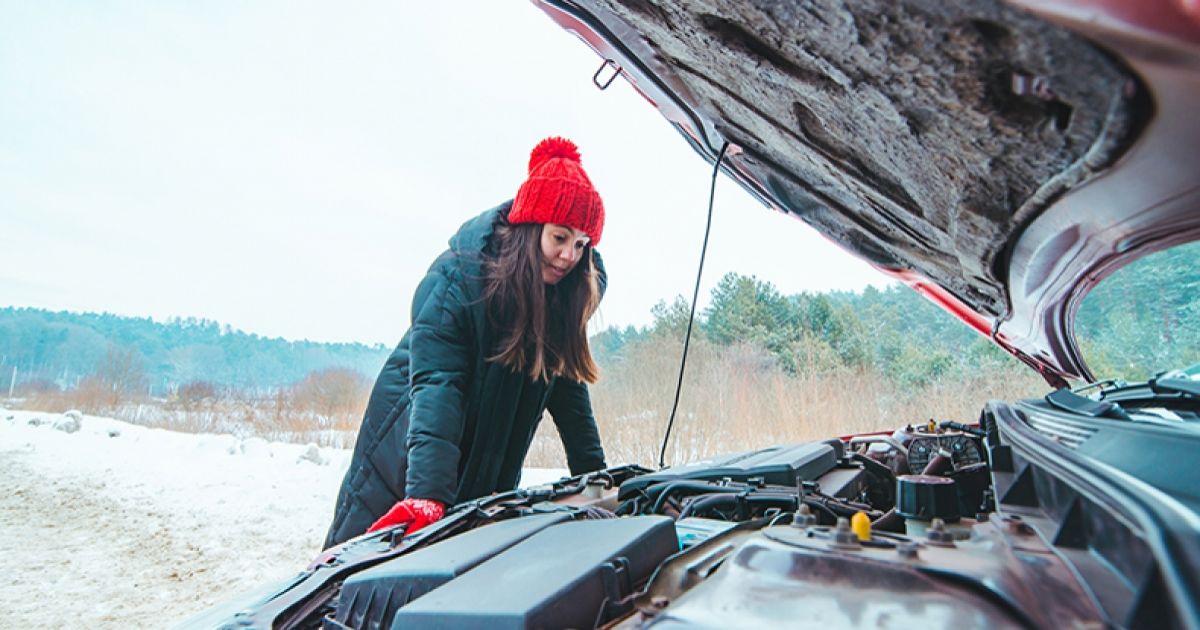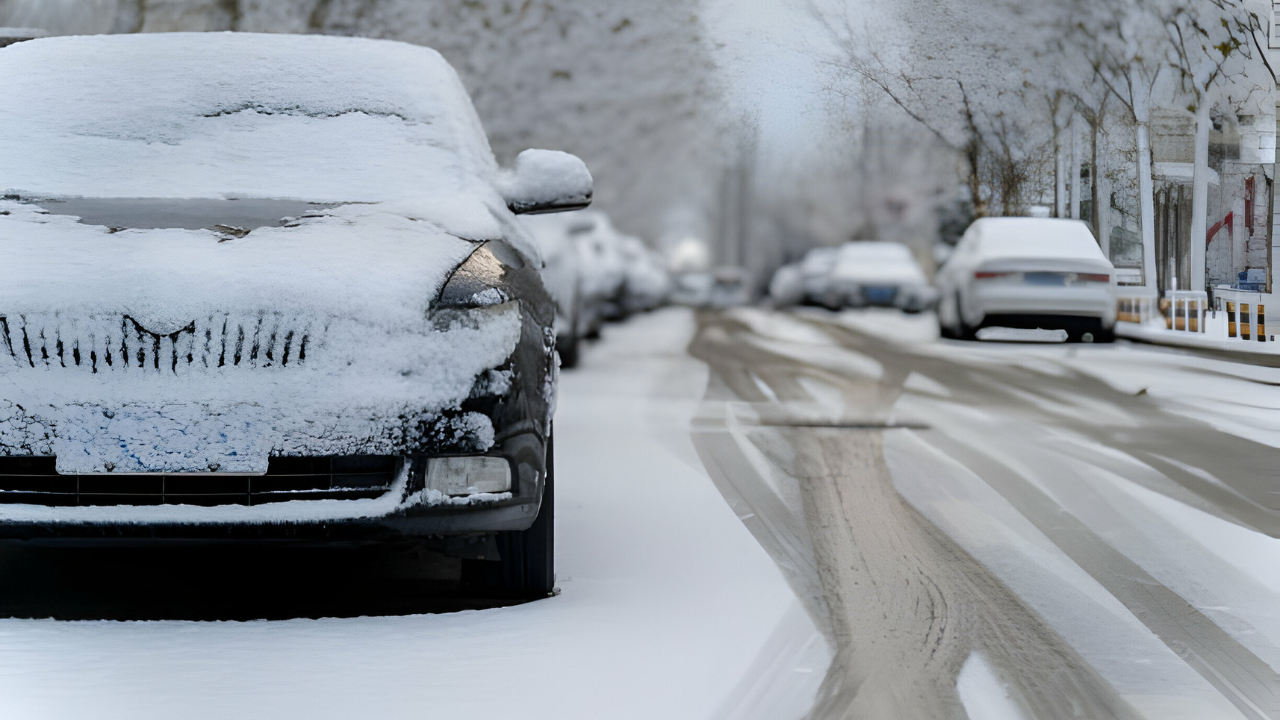If your car won’t start in the cold but the battery is good, it may be due to issues with the fuel system, spark plugs, or engine compression. Cold weather can affect the performance of these components, preventing the car from starting.
This guide will explore some common reasons a car won’t start in the cold despite having a good battery. We’ll also discuss potential solutions to help you troubleshoot and resolve the issue.
By understanding the underlying causes and knowing how to address them, you can ensure that your car starts reliably, even in frigid temperatures.
Let’s dive into the possible reasons behind this problem and explore practical steps to get your car running smoothly in cold weather conditions.

Credit: www.rac.co.uk
Why Won’t My Car Start In Cold Weather?
Temperature-related Issues
Cold weather can significantly impact your car’s ability to start. When the temperature drops, the oil in your car becomes thicker, making it harder for the engine to turn over.
Additionally, cold weather can cause the fuel to become denser, making it more difficult to ignite. These temperature-related issues can impede the smooth functioning of your vehicle.
Battery-related Issues
When the temperature drops, cold weather can cause your battery voltage to decrease, affecting its ability to deliver the necessary power to start the car.
Additionally, the cold weather can lead to increased use of the car’s electrical components, such as lights and heater, putting more strain on the battery. The combined effect of these factors can result in a car that won’t start, even if the battery is in good condition.
Troubleshooting Common Cold Weather Starting Problems
Check The Battery Voltage
Inspect the battery voltage using a multimeter to ensure it is within the recommended range of 12.4 to 12.6 volts. If the voltage is lower, a possible cause could be a weakened battery or insufficient charge due to cold weather.
Inspect The Starter Motor
Examine the starter motor for any signs of corrosion or wear. Additionally, check the connections to ensure they are secure and corrosion-free, providing a clean and uninterrupted power supply to the starter motor.
Evaluate The Fuel System
Assess the fuel system for issues like clogging or moisture buildup. Use a fuel system cleaner to remove any deposits affecting the fuel flow, especially in colder temperatures.
Examine The Spark Plugs
Inspect the spark plugs for wear or carbon buildup, preventing reliable ignition in cold weather. Additionally, ensure the spark plug gaps are within the manufacturer’s specifications for consistent firing.
Assess The Ignition Switch
Check the ignition switch for any signs of wear or malfunction. Ensure the switch makes proper contact and delivers the necessary current to start the engine, especially in colder conditions.

Steps To Fix The Issue
If your car doesn’t start in cold weather despite having a good battery, there are several steps you can take to troubleshoot and fix the issue. By following these steps, you can ensure that your car starts reliably even in freezing temperatures. Let’s go through each step one by one to resolve the problem.
Warm Up The Battery
Start by warming up the battery to improve its performance in cold weather. Connect a battery charger or jumper cables to another vehicle with a running engine and let it charge for a few minutes. This will boost the battery’s power and increase the likelihood of starting your car.
Clean Battery Terminals
In cold temperatures, corrosion can affect battery terminals, which can hinder the flow of electricity. To fix this, carefully remove the battery terminals and clean them using a mixture of baking soda and water. Scrub the terminals with a wire brush until they are free from corrosion or buildup. Once cleaned, reconnect the terminals securely.
Replace The Starter Motor If Necessary
If your car still doesn’t start after performing the previous steps, the problem may lie with the starter motor. In cold weather, the starter motor can struggle to engage the flywheel and start the engine. Consider replacing the starter motor with a new one to ensure reliable starts at any temperature.
Ensure Proper Fuel Delivery
Insufficient fuel delivery can also cause starting issues in cold weather. Check your fuel pump and fuel lines for any clogs or leaks. If necessary, replace the fuel pump or clean the fuel lines to ensure proper fuel flow to the engine.
Additionally, consider using a fuel additive designed to prevent fuel line freezing in cold temperatures.
Replace Faulty Spark Plugs Or Ignition Coil
Faulty spark plugs or a malfunctioning ignition coil can prevent your car from starting in cold weather. Inspect the spark plugs for any signs of wear or fouling and replace them if necessary. Additionally, check the ignition coil for any cracks or damage. If any issues are detected, replace the faulty components to ensure proper ignition and starting.
Repair Or Replace The Ignition Switch
The ignition switch sends power to your car’s starter motor and other electrical components. If the ignition switch is faulty, it can prevent your car from starting in cold weather. Inspect the ignition switch for any signs of damage or wear, and repair or replace it if needed. Make sure to follow proper safety precautions and consult a professional if necessary.

Credit: www.holtsauto.com
Preventative Measures To Avoid Future Cold Weather Starting Problems
When winter sets in, dealing with a car that won’t start in the cold can be a significant headache. To avoid this frustrating situation and keep your car running smoothly, it’s essential to take preventative measures. The following steps ensure your car starts effortlessly, even in the harshest cold weather conditions.
Use A Block Heater
One effective solution to prevent cold weather starting problems is to use a block heater. A block heater warms the engine block and helps maintain a suitable temperature for easier starting.
This device can be plugged into a typical electrical outlet and left connected overnight for optimal results. Using a block heater can eliminate the strain on your battery and improve the chances of a reliable start each morning.
Keep The Fuel Tank Full
Keeping your fuel tank full during winter months is another critical preventative measure. Not only does a full tank minimize the risk of running out of fuel, but it also reduces the potential for condensation to form inside the tank.
Condensation can lead to fuel line freeze-up, ultimately preventing your car from starting. So, remember to keep your tank at least half full or preferably complete at all times.
Opt For A Winter-grade Engine Oil
Choosing the right engine oil is crucial for cold weather starting. In colder temperatures, the viscosity of conventional engine oil increases, making it thicker and more challenging for the engine to circulate.
To overcome this challenge, opt for a winter-grade engine oil designed for cold weather conditions. Winter-grade oils have a lower viscosity and provide better lubrication, enabling easier engine startup even in freezing temperatures.
Park In A Garage Or Use A Car Cover
Where you park, your car can also play a role in preventing cold weather starting issues. Parking in a garage or using a car cover can protect from the elements and help maintain a moderate temperature.
This safeguard reduces the likelihood of frost buildup, affecting various components, including the battery and starter. A car cover is a cost-effective alternative for shielding your vehicle from frigid temperatures if a garage is unavailable.
Maintain Regular Battery Checks
Your car’s battery is essential for starting the engine and requires particular attention during winter. Cold weather can significantly impact battery performance and decrease its overall capacity.
To avoid being stranded with a dead battery, it’s crucial to conduct regular battery checks. Check the battery’s terminals for corrosion and ensure they are clean and secure. Additionally, regularly test the battery’s voltage to confirm it’s within the recommended range.
By taking these proactive measures, you’ll have peace of mind knowing your battery is in good health and ready to power your vehicle even on the coldest days.
Seeking Professional Help
It can be incredibly frustrating when your car refuses to start in chilly weather despite having a good battery. While there may be some DIY tips and tricks, sometimes it’s best to seek help from a professional mechanic. This section will discuss when to consult a mechanic and how to choose the right one.
When To Consult A Mechanic
If your car consistently fails to start in the cold, it indicates something is amiss. While a good battery may eliminate one potential cause, underlying issues could require professional expertise. Here are some scenarios where it’s wise to consult a mechanic:
- Your car won’t start after multiple attempts, and you’ve ruled out battery problems.
- The engine cranks weakly or makes unusual sounds.
- You’ve noticed leaking fluids or strange smells when starting the car.
- You’ve attempted common troubleshooting steps like jump-starting or checking the ignition system without success.
Choosing The Right Professional
Selecting the right mechanic is essential to avoid wasting time and money. Follow these considerations when choosing a professional:
- Look for certified mechanics who specialize in your car’s make and model.
- Get recommendations from friends, family, or online reviews to gauge the quality of their work.
- Inquire about their experience with cold weather car issues and their diagnostic capabilities.
- Ask for estimates and compare prices, but remember that the cheapest option may not always be the best.
- Ensure the mechanic uses genuine parts or offers warranties on their services.
- Verify that the mechanic is licensed, insured, and affiliated with reputable automotive associations.
By taking these steps, you can have confidence in your choice of mechanic and increase the chances of a successful resolution to your car’s starting problem.
The car won’t start when cold but starts when warm.
Frequently Asked Questions Of Car Won’t Start In Cold But Battery Is Good
Why Is My Car Not Starting In The Cold?
It’s common for cars to have trouble starting in cold weather due to thicker oil, reduced battery performance, or faulty spark plugs.
What Should I Do If My Car Won’t Start In The Cold?
If your car doesn’t start in the cold, try warming up the battery, checking the fuel system, or calling roadside assistance.
How Can I Prevent My Car From Not Starting In The Cold?
To prevent your car from starting in the cold, keep your battery charged, use winter-grade oil, and park in a warmer location.
Why Does A Good Battery Not Start The Car In Cold Weather?
Even with a good battery, cold weather can reduce performance and cause sluggish starting due to reduced chemical reactions.
Why won’t my car start in the cold, but the battery is good?
Possible reasons include fuel issues, ignition system problems, starter motor strain, thickened engine oil, electrical connection issues, or improper engine coolant mixture.
Why is my car not starting, but the battery is good?
Possible reasons include fuel issues, ignition system problems, starter motor issues, engine oil viscosity, electrical connection problems, or coolant mixture issues.
Why did my car not start cold?
Possible reasons include fuel issues, ignition system problems, starter motor strain, thickened engine oil, electrical connection issues, or improper engine coolant mixture.
Why does my car not start after sitting overnight?
Possible reasons for a car not starting after sitting overnight include a weak battery, fuel system issues such as a clogged fuel filter or fuel pump problems, ignition system problems like worn spark plugs or a faulty ignition coil, or a failing starter motor.
Conclusion
It is crucial to address various factors to overcome the frustrating issue of a car not starting in cold weather despite having a good battery. These steps can significantly improve cold weather, from ensuring proper fuel system functionality and using the recommended grade of oil to inspecting spark plugs, ignition coils, and the starter motor.
Regular maintenance, such as battery checks and investing in a battery blanket or block heater, can also make a significant difference. Remember, maintaining your car properly during colder months is essential for a smooth start.

I am a Mahdi . I have four two of experience in Technology and all types of Battery’s like Solar Battery, Car Battery, Lithium Battery etc. So I work on solving these issues and give various tips on these issues.

